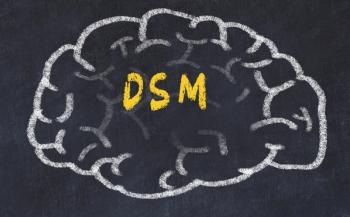
rTMS and Bipolar Depression: Predicting Clinical Response
Neuroimaging could help predict clinical response to treatment in bipolar depression.
A recent systematic review collected evidence on neuroimaging findings and biomarkers related to response to repetitive
Research indicates that alternative treatments like neurostimulation techniques, such as rTMS, have had positive results in treating unipolar depression. Thus, neurostimulation has been also proposed as a treatment option for bipolar disorder.2-5 Researchers have particularly focused on neural correlates of response to rTMS using different
“rTMS has become a promising and effective strategy for managing BD, due to its safety profile, non-invasive nature, and improved focality, with response rates of approximately 40% to 50%,” said Shamabadi et al.1
The systematic review found 5 main neuroimaging correlates of rTMS response:
1. Right insula activation
2. Changes in the activity of prefrontal and subcortical circuits in concert with ventromedial prefrontal deactivation
3. Increase in dmPFC-thalamus connectivity
4. Decrease in the connectivity of sgACC-caudate, dmPFC-insula, sgACC-midcingulate cortex, and dmPFC and parahippocampal gyrus/amygdala
5. Reduced SN connectivity
The systematic review results indicated that neuroimaging methods with TMS had the ability to predict clinical response to treatment and could provide insights into the underlying biological mechanisms of BD. Researchers could determine which patients are likely to have positive treatment response by observing brain activity and structural changes both before and after TMS treatment. Clinicians could then tailor treatment to the individual patient based on assessment of efficacy.
“This personalized approach to treatment can lead to improved patient outcomes, reduced health care costs, and increased patient satisfaction,” Shamabadi et al reported.1
How has TMS helped your patients? Share your thoughts with us via PTEditor@mmhgroup.com.
References
1. Shamabadi A, Karimi H, Cattarinussi G, et al.
2. McGirr A, Karmani S, Arsappa R, et al.
3. Lipsman N, McIntyre RS, Giacobbe P, et al.
4. Holtzheimer PE, Kelley ME, Gross RE, et al.
5. Bahji A, Hawken E, Sepehry A, et al.
Newsletter
Receive trusted psychiatric news, expert analysis, and clinical insights — subscribe today to support your practice and your patients.







